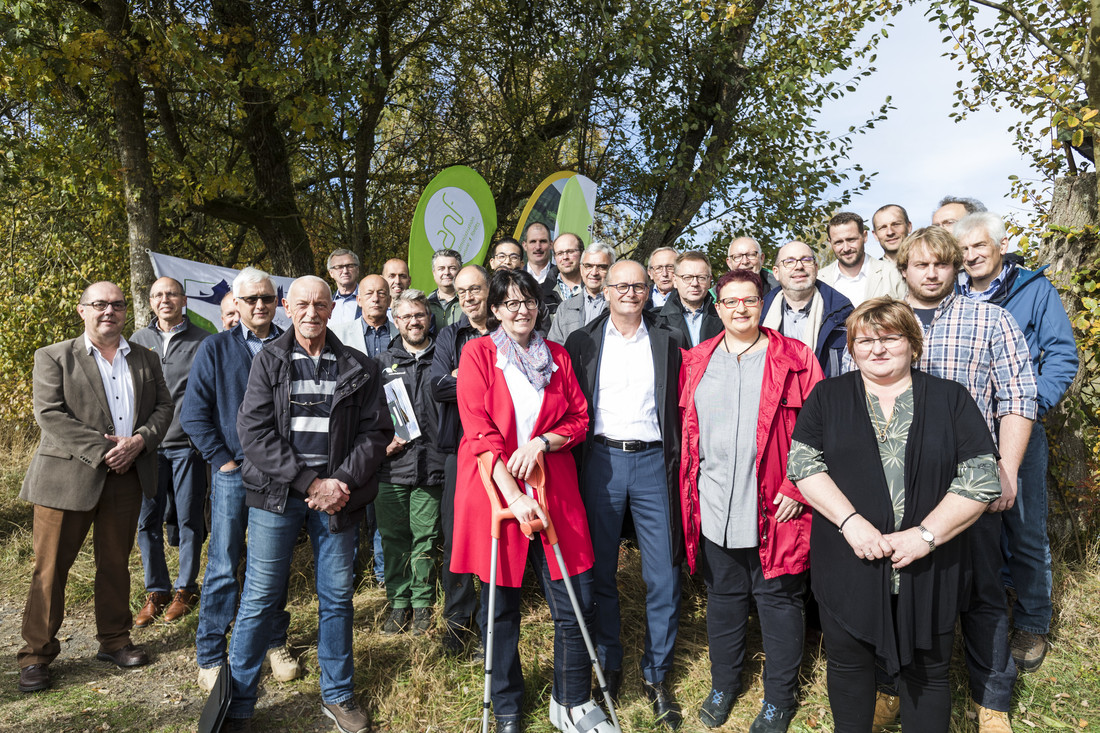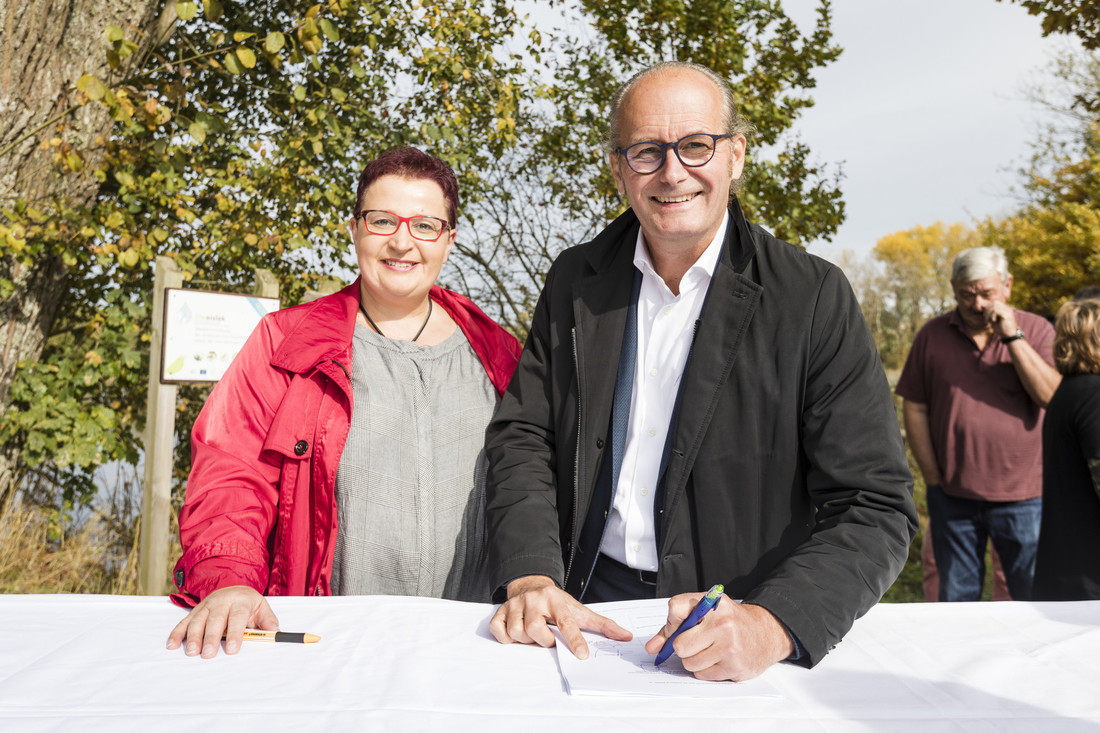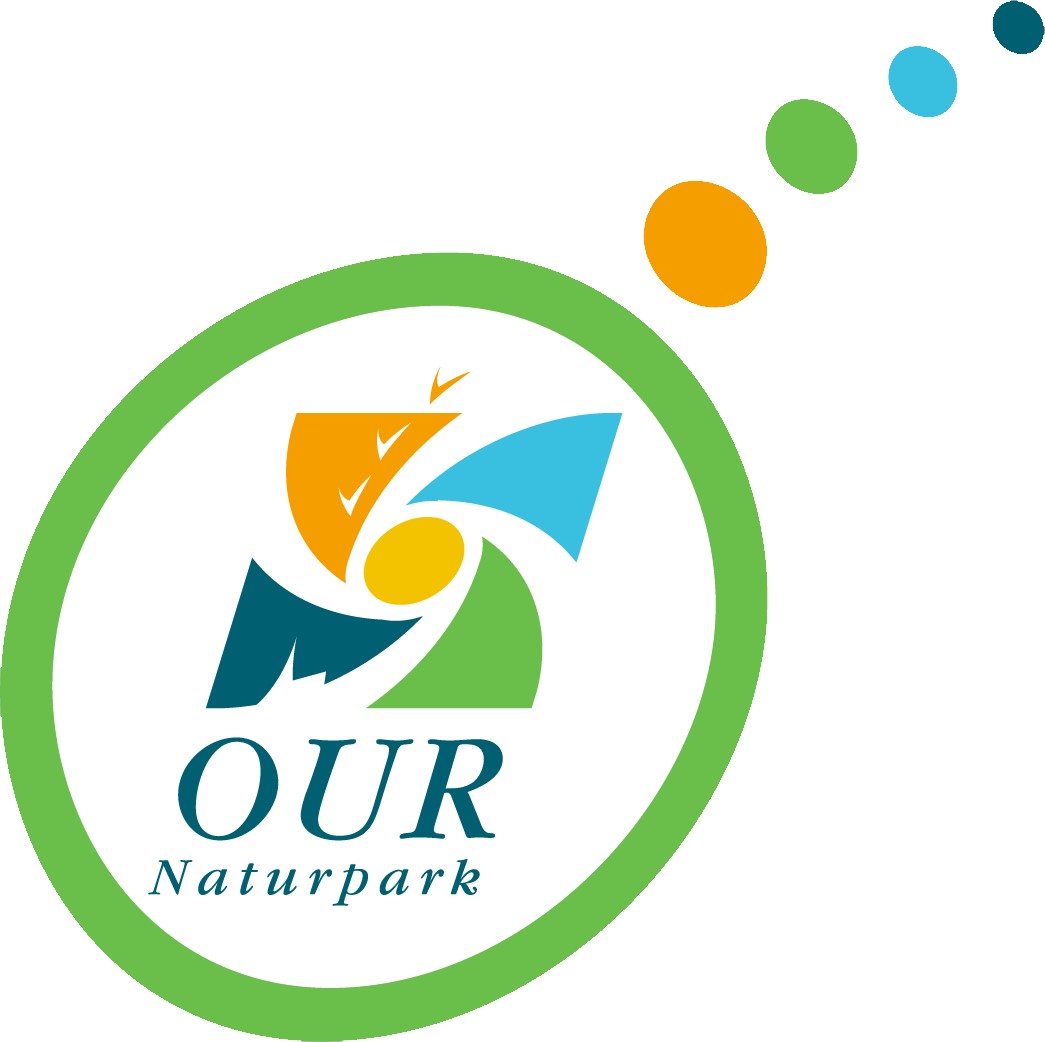Case Study
Comité de Pilotage – Steering Committee Natura 2000 Éislek
Contact name
Sascha Wernicke
Institution name
Nature Park Our
Region & country
North of Luxembourg, named Eislek
Summary
The role of the Comité de Pilotage – Steering Committee “Éislek” is to implement the measures provided by the national Natura 2000 management plans as well as to promote collaboration between the stakeholders. In order to gain acceptance of the measures and to consider the points of view of the various stakeholders, the high number of 35 representatives in the steering committee was chosen.

Official signing of COPIL Natura 2000 - stakeholders
Caroline Martin / Naturpark Our

Official signing of COPIL Natura 2000 - Francine Keiser, President of the Steering committee and Claude Turmes, Minister for Energy and Spatial Planning
Caroline Martin / Naturpark Our
Background of the project
In order to ensure the preservation of Natura 2000-Zones and their faunal and floral inhabitants, the national Nature Conservation Agency in Luxembourg drew up management plans for each Natura 2000-Zone. These plans outline the specificities of each zone, important threats, operational measures with a horizon of 10 years and long-term goals to be achieved in 30 years.
Some of the operational measures foreseen in the management plans are already promoted by local structures, such as the Biological Station of the Nature Park, the Foundation “natur&ëmwelt” (nature and environment), the Nature Conservation Agency, the Water Management Authority or agricultural advisors, but they are not sufficiently interlinked.
Solution and actions taken
A steering committee of 35 stakeholders from interest groups in 8 different areas was set up and a Memorandum signed in October 2018. The coordinator is in charge of proposing concrete actions to be selected and prioritized by the Committee. The Ministry of the Environment compiles a national Natura 2000 database covering the stakeholders’ actions and measures, to help coordinate implementation of the Natura 2000 management plans and facilitate regular project reporting in different regions.
At the moment, every partner (fields of activity: municipalities or syndicates, water management, agriculture, forestry and nature, tourism, environmental NGOs and private landowners) signed the Memorandum of Understanding in October 2018 and the first meeting of the Copil (Comité de Pilotage – Steering Committee) took place early this year.
The objective of this meeting was to get to know each other.
Other institutions or parties involved
- Nature Park Our,
- 14 Municipalities,
- Ministry of the Environment,
- Climate and Sustainable Development,
- (National) Water Management Authority
- National Conservation Agency (Forest & Nature Management),
- Agricultural technical Service Authority,
- Chamber of Agriculture,
- CONVIS,
- Family Forestry Luxembourg,
- Regional Tourism Office,
- Foundation Help for Nature, Nature&Environment – NGO,
- Ecological Movement – NGO,
- SEO (Our Electrical Society),
- Frënn vun der Schlënner & National Roads Authority
Results
To realize the operative aims of the different Nature 2000 management plans, a working group -the COPIL- involving all different local actors, was founded. With the creation of this working group, there now exists a local/regional communication platform to coordinate operative measures within the Nature 2000 areas.
Challenges
The big challenge was to find a participative and efficient approach for this huge committee at the very beginning of the process. How to involve the very heterogeneous group of stakeholders in the challenging implementation of the management plan; how to prioritize measures? Are there any good practices on how to work with a large steering committee and often conflicting interests? How to define an efficient mix of bottom-up/top-down approaches.
Lessons learned
Various actions have already been organized and coordinated. But there has to be better communication between the partners. To resolve this lack of communication, the decision has been taken to elaborate a central database to allow all the partners of the COPIL to be informed about the projects of the others. This database will be established and run by the Ministry of Environment and has a GIS feature.
Contact name
Sascha Wernicke
Institution name
Nature Park Our
Website(s)
